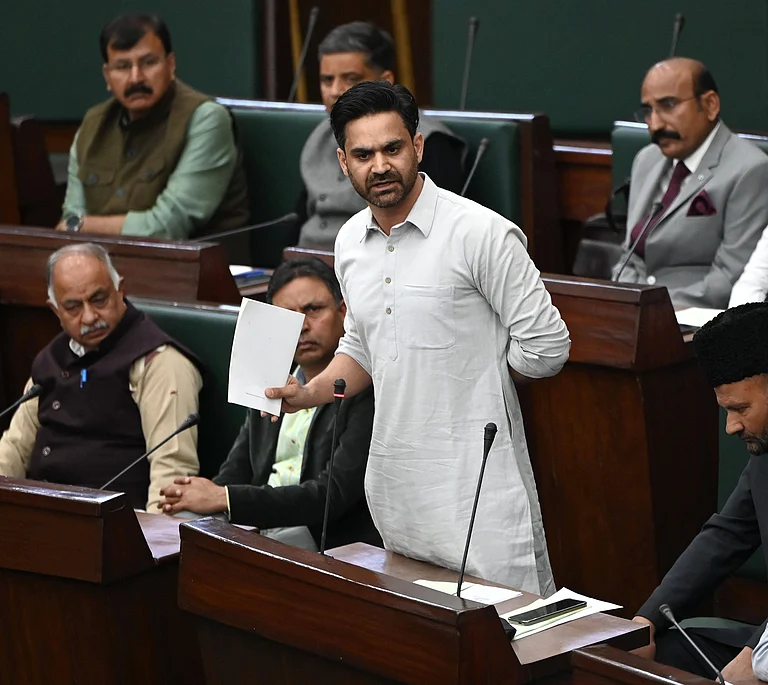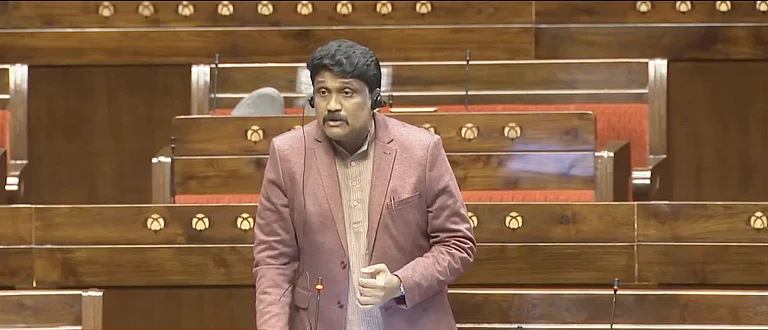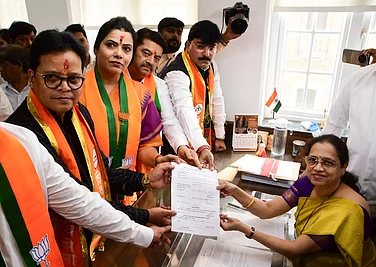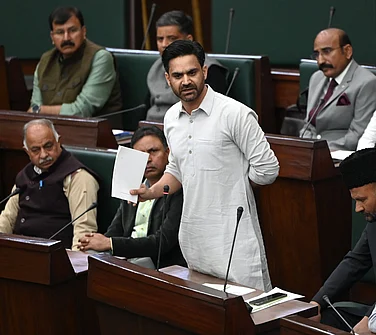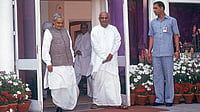GOA
Arun Sinha
Editor, The Navhind Times
If Goa’s USP is beauty, the biggest news here can be ugliness. For almost the whole of ’05 the state remained garbage-ridden. The year opened with a militant resistance by the villagers of Curca, where garbage from Panaji used to be dumped; the villagers burned down heavy equipment and blockaded municipal trucks after the wall of the garbage dump collapsed, spilling garbage into the village. Other villages followed their example, causing garbage to rot in trucks and public grounds in Panaji for days.
***
GUJARAT
Shreyans Shah
Managing Editor & Publisher, Gujarat Samachar
For 47 years, Gujarat has been a Gandhian state with total prohibition. But in ’05 an attempt was made to liberalise this policy. Not that prohibition was partially lifted, but the intensity of punishment for those found violating the law was somewhat reduced. Through an amendment of the existing law, it officially became a lesser offence.
***
HARYANA
Avinash Chopra
Joint Editor, Director, Punjab Kesri
When Punjab passed a resolution on not sharing the waters of the Ravi-Beas with Haryana, hardly any Haryana politician spoke up. Similarly, the territorial issue of Chandigarh as the capital of Haryana is also a dead issue. Politicians prefer to talk of investment by Samsung, the Ambanis, infotech companies.
***
ORISSA
Soumyaranjan Patnaik
Editor, Sambad
There’s so much of noise about MPs taking money for questions in Parliament, but one story from Orissa was totally ignored. A powerful MP floats anNGO to collect funds for cyclone victims and even goes abroad for this purpose. Along the way, he introduces a string of people to the embassies as his personal assistants. They travel, but never return. MP or travel agent?
***
ANDHRA PRADESH
K. Ramachandra Murthy
Editor, Andhra Jyoti
Andhra has seen copious rain in ’05. Successive drought for 7-8 years had deeply affected the people—one of the factors that had driven farmers to commit suicide. Rains this year have brought great relief and there is a dip in the number of farmers ending their lives. The media came in droves when gloom was all over the place. When there is hope, after nearly a decade, in the eyes of ordinary people, it does not seem to make a good story. Why?
***
CHHATTISGARH
Rajeev Ranjan
Editor, Deshbandhu
The ownership pattern of agricultural land in Dalit/tribal areas in our state is changing quietly. What happened in Bhuraki village of Benetra in ’05 is a sample. In the last 4-5 years, people from western UP and Haryana have been buying land, establishing old-style feudal zamindar-labourer relation, with its inherent oppressions. They have also changed the pattern of crops, introducing cash crops. This year, when a land dispute arose between Dalits and zamindars, they murdered two Dalits in cold blood. It was meant to be a warning against protests. The situation was so bad that despite a huge police presence in the area after the murder, the tormenting of Dalits has not stopped. The tension persists.
***
MADHYA PRADESH
Kalpesh Yagnik
Editor (Indore), Dainik Bhaskar
Every April, people congregate in Dewas for the Dharaji Mela. It is a traditional fair that has been going on for decades. In ’05 too the mela attracted over three lakh visitors but a nasty surprise awaited them. The floodgates of the Indira Sagar dam in neighbouring Khandwa district were opened. The water, which came rushing down to Dharaji, washed away 101 people. For three days, the area remained flooded. Only 72 bodies could be recovered, the remaining 29 are still untraced as a result of the administration’s callousness.
***
RAJASTHAN
Rajesh Sharma
Editor, Rashtradoot
Over 60-65 per cent of the country’s mustard comes from Rajasthan alone. In ’05, there was a bumper crop—30 lakh tonnes. But palmolive oil was the potential competitor. Due to the wto regime, the Centre could not restrict its import. Palmolive oil was priced at around Rs 36 a kg, as against Rs 45 for mustard oil. Since these two oil types are consumed by the lower strata of society, even a small price difference is a lot. The government fixed a support price of Rs 17 for mustard, but the market price remained at Rs 12. This had an impact on the mills. Warehousing became a big issue, the maximum the government could stretch its warehousing capacity was to 9 lakh tonnes. Even schools were being considered as godowns. Some 14 lakh tonnes are still lying in the godowns. And another crop is coming up by end February ’06.
***
HIMACHAL PRADESH
Anil Soni
Editor, Divya Himachal
When people talk of Himachal, it’s mostly about its pleasant weather. But ’05 the state moved closer to becoming the pharmaceutical hub of India. Many pharma majors chose to relocate to the state for its uninterrupted power supply, copious water and peaceful environment. Expected investment: Rs 16,000 crore.
***
KARNATAKA
Vishweshwar Bhat
Executive Managing Editor, Vijaya Karnataka
Until the police gunned down a Naxal leader, Saket Rajan, Kannadigas were hardly aware of Maoist rebels in their backyard. Five days later, the revenge killings began. Police intelligence found that Naxalites were infiltrating the thickly-forested Western Ghats. With many intellectuals supporting the Naxalites and blaming their spread on lack of development, the government is in a quandary.
***
TRIPURA
Paramita Livingstone
Managing Editor, Dainik Sambad
Despite the torrential rains, water scarcity stares at Tripura. Water-borne diseases claimed 16-19 lives this year as per government sources. But our own investigations showed it was well over 50. The Centre keeps making noises about new projects and special funds, but there is hardly any sign of it here.
***
JAMMU & KASHMIR
Sajjad Haider
Editor, Kashmir Observer
On October 19, ’05, the telecom link between J&K and Pakistan—severed in ’92, ostensibly for security reasons—was restored to enable communication between anxious relatives across the border. Following the devastation caused by the earthquake, many were worried about their kin. But after a fortnight, the facility made available at the police control rooms at Jammu and Srinagar, besides the relief camps in Uri and Tangdhar, was given a quiet burial. The long-awaited humanitarian gesture India made turned out to be a joke. In an era of bonhomie, the one-sided denial of telephone facility to the region is amusing as well as amazing.
***
MAHARASHTRA
Kumar Ketkar
Editor, Loksatta
The story of Manisha Mhaiskar, the collector of Sangli district, hardly got a mention in the regional press. In early ’05, there was famine in the region. Manisha visited farmers, organised cattle camps and arranged for fodder. Then came the floods. But with the effective evacuation measures, not a single person died.
***
MEGHALAYA
Manas Chaudhuri
Editor, The Shillong Times
Nine people, mostly students of the Garo tribe, were felled by police bullets in Tura and Williamnagar in September. This time, the Khasi-Garo battle was over the Meghalaya Board of Secondary Education. Following a series of slip-ups, including question paper leakage and wrong question paper circulation, the Khasi Students’ Union launched an agitation. A special committee was deputed to suggest corrective steps. Its recommendations, approved by the cabinet in toto, irked the Garo Students’ Union. Their counter-agitation led to the loss of lives.
***
UTTAR PRADESH
Sanjay Gupta
Editor & CEO, Dainik Jagran
A human tragedy like encephalitis or Japanese fever in Gorakhpur, which claimed more than 1,000 people, mostly children, was ignored by the English media. This story assumed importance in August ’05, by which time 100 deaths had already been reported. After August, the epidemic spread to 32 of the 70 districts. The government took no action till the governor visited the area. The vaccine, which is produced in Korea, did not arrive till November, by which time 1,430 people had died. Encephalitis is not new to the area, but the death toll was the highest in 28 years!
***
WEST BENGAL
Ashok Dasgupta
Editor, Aajkal
The erosion of the Ganga and Padma has a long and pathetic history of wiping out villages. In ’05 this got a new momentum. The affected people of Malda and Murshidabad lost their homes and cried for help. The government arranged for temporary obstructions and wrote strong letters to Delhi but the Centre refused acknowledge that it was a national disaster. Disaster management? Too little, too late.
***
JHARKHAND
Harivansh,
Chief Editor, Prabhat Kabhar
Exactly a month before the Jehanabad Naxal attack and jailbreak in November ’05, a similar attack took place in a city called Giridih in Jharkhand, which is also the district headquarter. In broad daylight, Naxals launched an attack on the police camp and escaped with 185 rifles, arms and ammunition. It was a first such urban incident in Jharkhand and people were witness to the crumbling of state power. But nobody took it seriously. Exactly one month after this, the now infamous Jehanabad jailbreak took place.
***
PUNJAB
Satnam Singh Manak
Assistant editor, Ajit
For years, Punjab’s Terrorist Disturbed Area Act restricted visas for visitors. It’s only in the present session of Parliament (December ’05) that the home minister, in response to questions by Rajya Sabha MP Tarlochan Singh and M.S. Gill, announced that the act had actually lapsed in 1997! For the last eight years no embassy or immigration agency was informed. The law prohibited Pakistanis on the Samjhauta Express or the Delhi-Lahore bus from boarding or getting off at Punjab. They had to first go to Delhi and take permission to come to Punjab. The act was also a convenient tool for preventing Punjabi NRIs from coming home directly.
***
KERALA
S. Jayachandran Nair
Editor, Malayalam Varika
The rape of a nursing college student by three of her colleagues last October was distressing. The girl is from a very poor family. Her father, a daily-wager, had sent her to school despite all his struggles. He imagined that education would bring deliverance to their family. She had been a brilliant student right through. But at a crucial bloom in her life, she became a victim of this heinous crime. Her colleagues laced a ladoo with sedatives and then raped her. It’s painful to see the hope of a poor family being erased. We call ourselves a literate and cultured state, but to what end? Not a single cultural leader or writer stood up and expressed outrage when the incident took place.
***
TAMIL NADU
B. Srinivasan
Joint MD, Junior Vikatan
After the ‘encounter’ slaying of Veerappan by the Tamil Nadu STF, the Karnataka police force felt they were denied their ‘rightful chance’ to vanquish the ‘enemy’. They began persecuting Tamil-speaking people in areas bordering TN. Even Tamil prisoners were not spared. But this news never reached the national fora.







